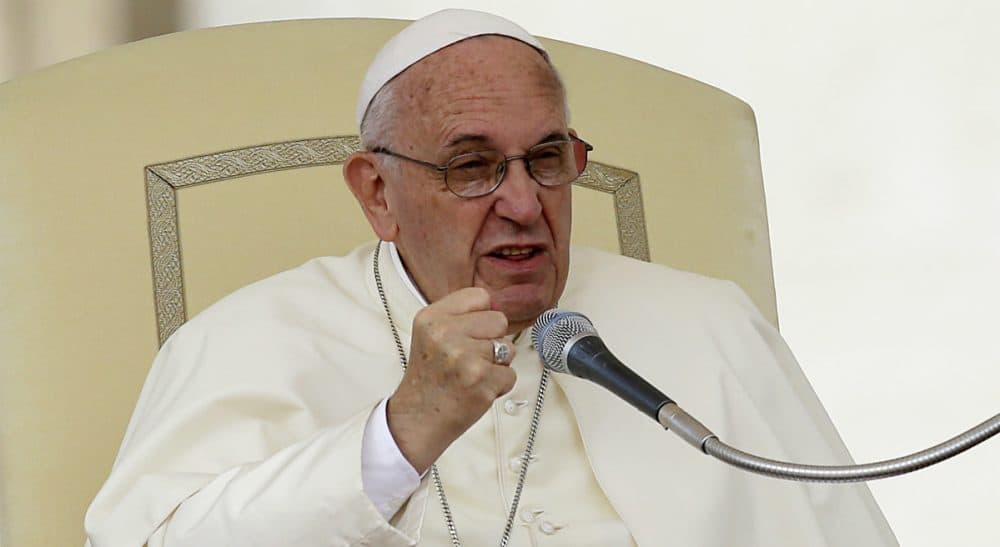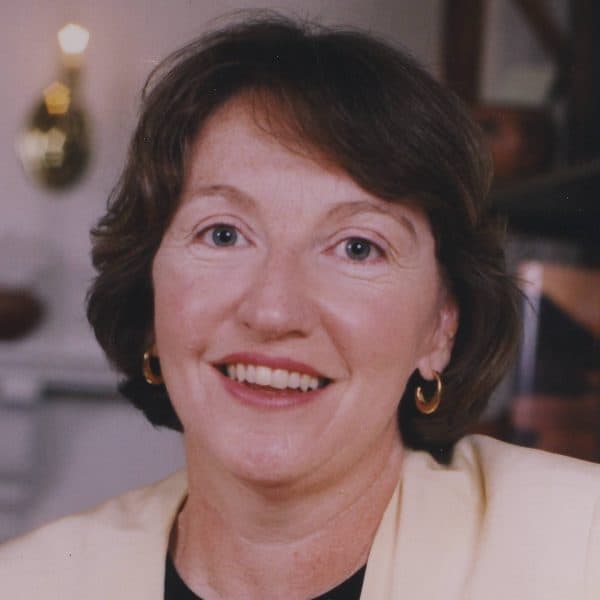Advertisement
How The Pope Is Making Cafeteria Catholics Out Of Conservatives

Look who the cafeteria Catholics are now.
Conservatives, who have long derided as faux Catholics those who reject the church’s teaching on birth control, abortion, homosexuality, priestly celibacy or the ordination of women are, in the age of Pope Francis, having second thoughts about the virtue of blind obedience.
Jeb Bush balked when the pope blamed unbridled capitalism for income inequality and the environmental devastation wrought by global warming. "I hope I’m not going to get castigated for saying this by my priest back home, but I don’t get my economic policy from my bishops or my cardinals or my pope," Bush said.
Not since John F. Kennedy ran for president in 1960 have we seriously entertained the notion that the pope dictates policy to Catholic politicians.
This from the former Florida governor who told an audience of lay Catholics in Italy in 2009 that, “As a public leader, one’s faith should guide you. In the United States, many people think you need to keep your faith, put it in a security box, if you’re an elected official, put it in a safety deposit box until you finish your service as a public servant and then you can go get it back. I never felt that was appropriate.”
He sure didn’t.
Bush, who converted to Catholicism 25 years ago, let his faith guide him to court in unsuccessful bids to appoint a guardian for the fetus of a 22-year-old rape victim with severe developmental disabilities in 2003, to block the removal of a feeding tube from Terri Schiavo despite her persistent vegetative state in 2005 and to prevent a 13-year-old girl from having an abortion that same year.
Now, the Republican presidential contender says, religion "ought to be about making us better as people and less about things that end up getting into the political realm."
Rick Santorum, too, is having trouble with a pope not nearly as preoccupied with sex as the former Pennsylvania senator, himself a Catholic. Santorum recoiled in January when Pope Francis said there was no need to procreate "like rabbits" in order to be a faithful Catholic. It is "sometimes very difficult to listen to the pope and some of the things he says off the cuff," Santorum scoffed.
Advertisement
His pique was predictable from a GOP presidential aspirant who targeted contraception in his previous run for the White House. “One of the things I will talk about, that no president has talked about before, is I think the dangers of contraception in this country,” he said in 2011. “Many of the Christian faith have said, well, that’s OK; contraception is OK. It’s not OK. It’s a license to do things in a sexual realm that is counter to how things are supposed to be.”
GOP Congressman Paul Gosar from Arizona plans to boycott the pope’s unprecedented appearance before a joint session of Congress this week. A self-described “proud Catholic,” Gosar was appalled by the pontiff’s 184-page encyclical blaming human activity for the devastating effects of climate change. "To promote questionable science as Catholic dogma is ridiculous," he wrote in a column on Townhall.com, a conservative website. "When the pope chooses to act and talk like a leftist politician, then he can expect to be treated like one.”
There is nothing new about selective hearing among American Catholics, of course. It has always been a fractious clan with different factions embracing the pro-life label in opposition either to abortion or to capital punishment despite church teaching that condemns both.
To suggest that Pope Francis should remain silent in [public policy] debates ignores the role religious leaders have always played in the American public conversation.
Yes, immigration, economic inequality and climate change are matters of public policy. They are also issues of social justice. To suggest that Pope Francis should remain silent in those debates ignores the role religious leaders have always played in the American public conversation. Quakers and Protestant evangelicals opposed slavery. The Southern Christian Leadership Conference championed civil rights. Orthodox Jews, Catholics, Mormons, Muslims and fundamentalist Christians opposed gay marriage even as the Reform and Conservative Jews, the Unitarian Universalist Association, the Episcopal Church and the United Church of Christ embraced it.
Not since John F. Kennedy ran for president in 1960 have we seriously entertained the notion that the pope dictates policy to Catholic politicians. In a country where Catholics use birth control and get abortions at the same rate as non-Catholics and where more than a quarter of Catholic marriages end in divorce, the pope’s voice is one influence among many on matters of sexual practice, trumped for most American Catholics by individual conscience.
Pope Francis has turned the conversation away from those narrow, private concerns to the global challenge of environmental degradation, income inequality, immigration and the refugee crisis overwhelming Europe. Conservative Catholics are free to disagree with him or to put their fingers in their ears. It’s a big cafeteria. Plenty of room for everybody.
